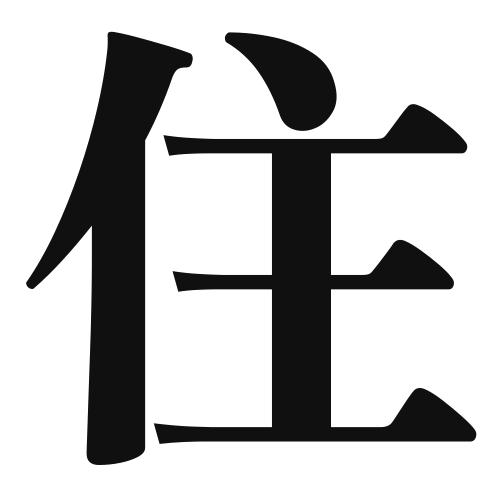1. Overview of Meaning
The kanji “住” (pronounced “juu” or “sumu”) means “to live” or “to reside.” It refers to the act of living in a place or dwelling in a home.
2. Formation and Radicals
The kanji “住” is a compound character that combines the radical for “house” (宀) and the character “主” (meaning “master” or “main”). This combination suggests the idea of a person residing in a house.
The radical 宀 indicates a connection to buildings or homes, reinforcing the meaning of living or residing.
3. Examples of Usage
Common words and phrases that include “住” are:
- 住む (sumu) – to live
- 住所 (juusho) – address
- 住民 (juumin) – resident
Example sentences in daily conversation:
- 私は東京に住んでいます。 (Watashi wa Tokyo ni sundeimasu.) – I live in Tokyo.
- あなたの住所はどこですか? (Anata no juusho wa doko desu ka?) – What is your address?
4. Synonyms and Antonyms
Similar kanji with related meanings include:
- 居 (i) – to stay or reside, often used in contexts of being present in a place.
- 宅 (taku) – home or residence, often used in formal contexts.
Antonyms include:
- 去 (kyo) – to leave or depart, indicating the opposite of residing.
5. Cultural and Historical Background
The kanji “住” is deeply connected to Japanese culture, where the concept of home and community is highly valued. It reflects the importance of having a place to call home.
In Japanese proverbs and idioms, the idea of “住” often appears, such as:
- 住めば都 (Sumeba miyako) – “Where you live becomes the capital,” meaning that one can find comfort and belonging anywhere they reside.
